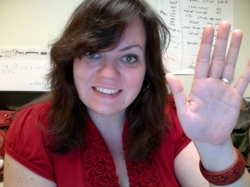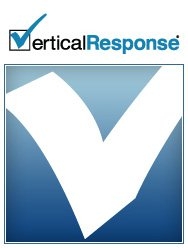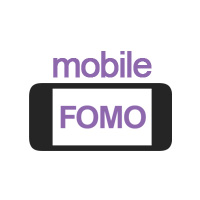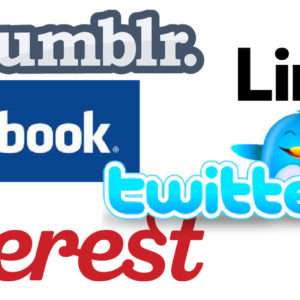A personal history of SXSW interactive

Austin became home for me in 1996 when I attended the University of Texas. Back then, SXSW was known for music, but not so much for film (started in 94). I have many fond memories of SXSW music… In the late 90s it seemed to me like SXSW interactive was brewing, but it didn’t capture my interest. There wasn’t much promotion for the multimedia part. After a few years of attending SXSW music my interest turned to film. In my film hey day I was a budding screen writer and a member of the Austin Screenwriter’s group and even a judge at the lesser known (and older) Austin film society festival.
My first SXSW infatuation was music, then film, then interative stole my heart forever.
I was fortunate enough to be finishing school around the first dot com boom in the late 90s. Without much experience I got a job as a DBA at the Harry Ransom Center on UT campus during my senior year. Then a surge of tech companies moved to town almost overnight. They gave us red bull and sometimes omelette stations, but more importantly they told us that we were special. Austin was dubbed ‘Silicon Hills’. I started working for my first .com as a designer / developer in ’99. Things were booming in Austin, tech people were on top that year. I remember the distinct feeling when I realized it was sorta’ cool’ being in tech. At that time I knew I was part of a scene that was forming, yet the SXSW interactive portion wasn’t a draw to me yet.
Locals almost never paid for interactive passes in the beginning. I don’t remember paying for a pass until 2005 or so. Generally you could find passes or just volunteer for a day or two and get in free. In the early 2000s it was a very disorganized group of people speaking about technology and philosophy. Nobody announced it or what they were doing, sometimes there didn’t seem to be a moderator. Only a very small crowd showed interest locally. People from out of town seemed to fill up SXSW. Personally speaking I was more interested in the robots and doo dads I saw in the various booths than the panels. Companies exhibiting were mostly local and many were just there to hire talent.
Many attendees for the festival were recruited out of Apple, Dell and the other tech companies around. I happened to work at Apple and had many friends who did as well. We didn’t have to work very hard to get SXSW passes. Then the bubble burst. After the first .com bust local interest in SXSW waned quite a bit.
Generally speaking, Austin is a down home place where anyone can feel at home almost instantly. In the early days SXSW Interactive gave us techies a homecoming (dance) and a summit where great minds would meet. SXSW interactive lost it’s momentum after the dot bust. I remember offering tickets to people and they’d just shrug and say “so what.” None of my friends wanted to go. Tech wasn’t as cool anymore, we were using MySpace, not Facebook (yet).
During the mid 2000s SXSW interactive started to glide like a beautiful slow jam which suddenly turned into a long groove.
The Austin tech community merged with what was left of the talent from the first dot com boom. Many tech people left for the bigger cities in Texas or went back home. The turning point for SXSW interactive’s success was Twitter’s collosal splash in 2007. We finally had a channel for all of our chatter. Most of us were talking online already, but on private telnet chat systems, AIM or ICQ. That year Twitter became the hottest party line that geeks knew the number to. That’s when the world saw that SXSW could blow it up for the budding entrepreneur. In the late 2000s I watched new companies form after the meetings held in Austin. Being a geek was finally good again. We got our status back. SXSW has become the world’s financial geek index forecast.
In the past few years by virtue of growth, the focus has changed and allowed companies a place to showcase what they’ve done. Big companies want to hang, too. They want our approval and interest. Perhaps corporations now know SXSW is the stage where talent is drawn to perform. While there are 3 separate festivals, we all flock together. Many believe that SX’s success has come with a price.
Austin is a special place, and I believe it holds the heart and soul of Texas – a tall order for any city. Austin delivers. SXSW tech became its’ own jam session. I’ve taken to referring to SXSW as geek-a-palooza in recent years. The festival evolved as the industry did and I believe that will continue to happen. Bikers have sturges, comic book fanatics have COMICON and as lady geek I have SXSW interactive. SXSW will always be about staying on the pulse with the best and the brightest geeks. Commercial or not, I know I will see some amazing things this year. My theory is that the life cycle is starting all over again. A new scene is forming and the old one is still there (if you know where to look).
From now on I will always buy a pass to SXSW interactive, but more and more of my friends are not buying one. It’s increasingly common for me to hear people saying that they are attending, but then qualify it as “without buying a pass.” I have a theory to explain this change. You don’t need to get a pass if you’re just pitching your ideas. The talent of the festival is all around you and they’re quite ready to get out of the convention center. There have been a few years that I went to SXSWi without any official pass. You’re almost like an outlaw without a pass, but there’s always fun when you feel in danger. I’d go to mixers without that badge and clusters of people with badges always stuck together.
Techkaraoke canceled their party permanently this year because it is too expensive to be an official SXSW event. Their cancellation signals proof of this change people are openly defying SXSW, inc. The cancelation of TechKaraoke was part of my inspiration in creating the Pitchmyhouse.com contest (winners announced today). It’s also why we’re throwing an epic kegger… SXSW, inc. cannot own us as individuals or our ideas. Two tracks of people are going to be present at SXSW from now on, badge and non-badge. I believe these numbers will even out over time. It will soon become cooler to not have the pass at all. Although, I truly believe the true tech incubation activity happens at the parties surrounding the festival. We’re all comfortable with being geeks at SXSW. That’s maybe part of the reason I ended up living in SF, but SXSW will always feel like home.


